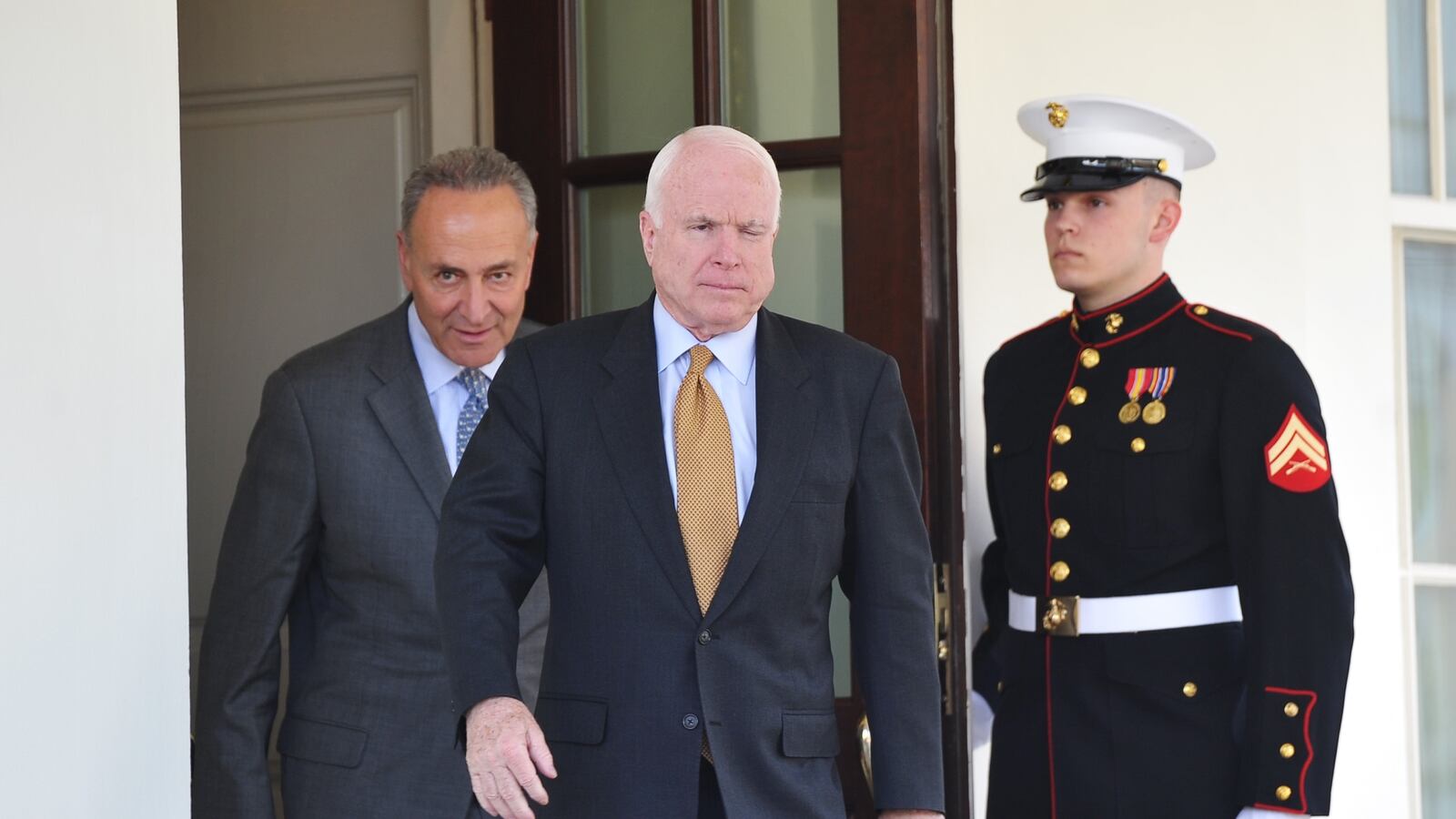Economists use the term "revealed preference" as a technical substitute for "watch what we say, not what we do."
Here's what is revealed by the Gang of Eight immigration compromise:
1) Republicans want to postpone voting rights for illegal immigrants as long as possible. Unlike some of the more gullible right-wing pundits, congressional Republicans hold few illusions about how the present-day illegals will vote. Under the deal, voting rights wouldn't begin to arrive until 2027.
2) Nobody important much cares about the impact of immigrants on the wages and employment of the native born. The deal immediately opens every category of employment to present-day illegals. Today, large, visible, low-wage employers like Wal-Mart and McDonald's take care to avoid employing illegal labor. Tomorrow, their labor pool will hugely expand, with resultant downward pressure on wages. (Some economists say otherwise, but then they too have their revealed preference: not to be fired by their employer-funded think tanks.)
3) It's good to be an employer. Not only is full implementation of e-verify delayed for ten years (inviting lots more illegal migration over the next decade), not only are illegally employed agricultural workers eligible for special legal status but there will also be a low-wage guest worker program. The authors of the compromise seem worried that even after 14 years of declining wages, Americans still don't work for cheap enough.
4) Non-Mexican illegal immigration is fine. By often-cited estimate, fully one-quarter of illegal immigrants arrive legally, but then overstay their visas. The proposed agreement has a lot to say about hardening the US-Mexican border, but allows ten years to implement monitoring of visa-holder exits. Combine that with the ten year delay of e-verify, and the message surely is: if you are a middle-class Pakistani or Ghanaian who has ever aspired to live in the United States, buy an airline ticket, apply for a student visa, and come now - in time to be well settled before the next amnesty which surely will follow this one.
5) The word "amnesty" is very unpopular; the thing, not so much. It costs $500,000 of nonresidential investment to buy your way into Canada. The price of life in America has been set at $500. I love and admire my native land, but I can hardly believe that permission to live in Canada is literally worth 1000 times as much as permission to live in the United States. A fine of $500 hardly qualifies as a fine at all. By the way, Marco Rubio uses the figure of $2,000, but that refers to the cumulative 10-year total of the fines on the way to a green card. $500 is the immediate price for provisional rights - but they'll prove permanent enough.






